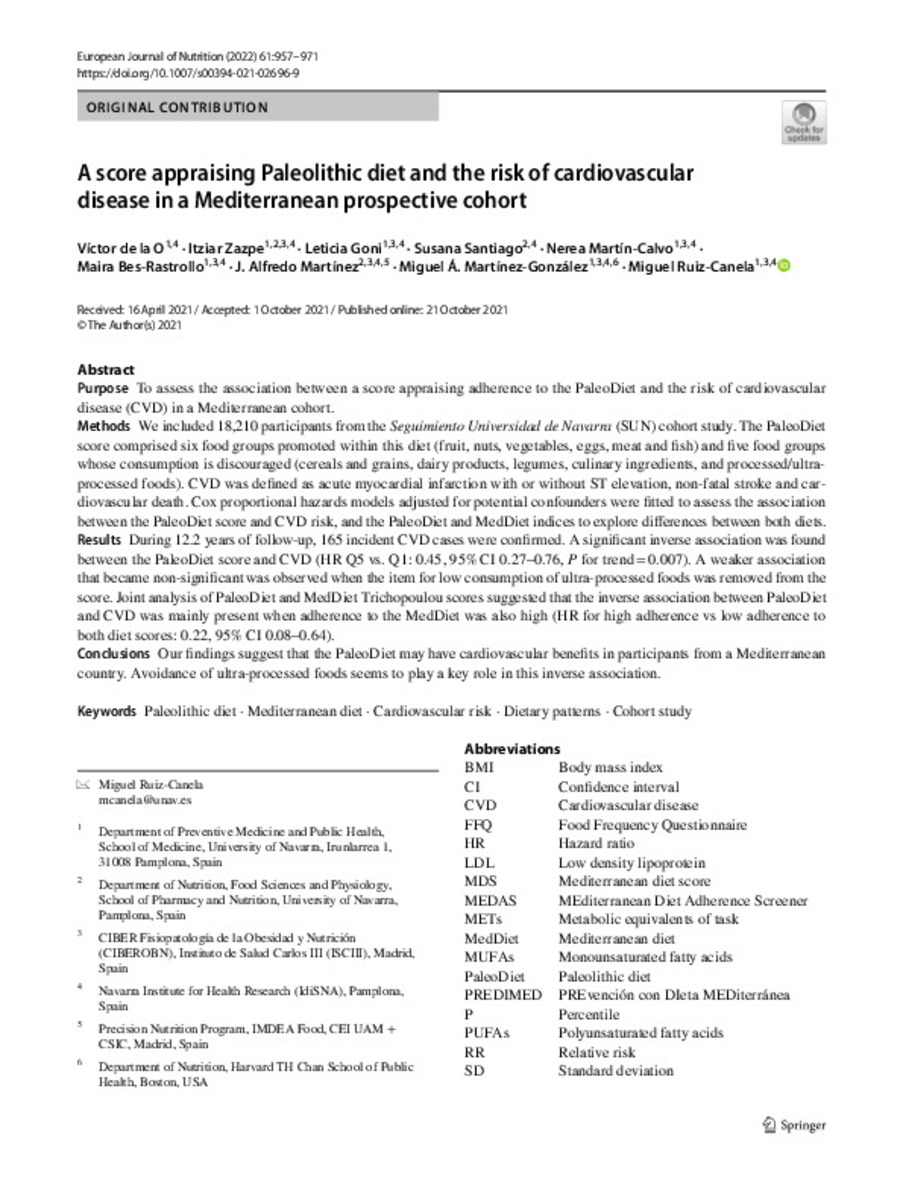A score appraising paleolithic diet and the risk of cardiovascular disease in a Mediterranean prospective cohort
Keywords:
Paleolithic diet
Mediterranean diet
Cardiovascular risk
Dietary patterns
Cohort study
Note:
This article is licensed under a Creative Commons Attribution 4.0 International License
Citation:
De-la-O-Pascual, V. (Víctor); Zazpe, I. (Itziar); Goni, L. (Leticia); et al. "A score appraising paleolithic diet and the risk of cardiovascular disease in a Mediterranean prospective cohort". European Journal of Nutrition. 2 (61), 2021, 957 - 971
Statistics and impact
0 citas en

Items in Dadun are protected by copyright, with all rights reserved, unless otherwise indicated.








